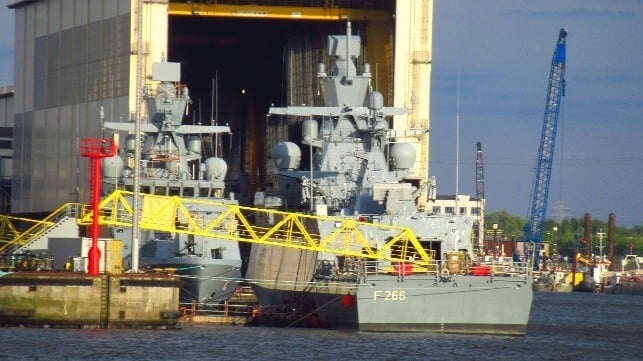Unknown Saboteurs Are Targeting German Navy Warships

The German Navy has confirmed that unnamed saboteurs have attempted to damage more than one of its warships, and media reports from Germany suggest that at least two vessels have been affected.
In 2024, a German Navy minehunter was damaged by unknown personnel while in shipyard in Rostock. Several cable harnesses were severed, and an investigation is under way into a suspected sabotage attack, according to Spiegel. The Rostock prosecutor's office has confirmed that it is investigating the case.
Late last year, an unknown saboteur dumped dozens of kilos of metal filings into the oil sumps of the main engines aboard the brand new corvette Emden, according to multiple German media outlets. The contamination was detected and cleaned out, but if it had not been spotted, it would have quickly destroyed the engines.
Last week, German Navy Vice Adm. Jan Christian Kaack told the press that "more than one unit" had been sabotaged, without going into specifics. Troublingly, he added that German naval bases have reported a pattern of attempted security perimeter breaches, both from the shoreside and from the waterside. He added that uniformed German Navy personnel have been approached in public while en route from base to their homes.
"The growing threat from Russia is more urgent at the beginning of 2025 than it was two years ago," Kaack told reporters, without specifying whether the suspected security threats within Germany were Russian.
The suspected attacks are just part of a broader pattern of sabotage targeting Europe's security forces and its infrastructure. In early 2024, three German-Russian dual nationals were arrested on suspicion of planning an attack on the U.S. military base at Grafenwohr, a training facility for Ukrainian servicemembers. The main suspect, identified as Dieter S., stands accused of plotting an extensive series of arson and explosive attacks within Germany, with targets including rail lines and a manufacturing plant.
Some NATO security forces also suspect - but have been unable to prove - that the four back-to-back subsea cable breaks in the Baltic over the past year are an intentional act of sabotage, potentially linked to Russian intelligence.
Top image: German Navy frigate Emden (F266) at Blohm+Voss, 2023 (Dkvtig / CC BY SA 4.0)
